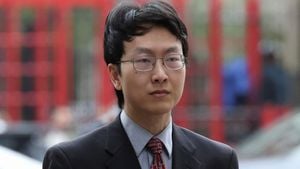The South African educational system is undergoing remarkable transformations as it strives to provide a more equitable and efficient learning environment for its students. From significant changes to the school calendar to addressing issues surrounding university admissions, the shifts reflect broader attempts to reshape education across the country.
One of the most notable changes is set to take place on 15 January 2025, when schools across South Africa will adopt a new unified academic calendar. This transformation, announced by the Department of Basic Education, marks the first time inland and coastal schools will share the same start date, abandoning the previously staggered schedules. The new calendar will stretch the school year to 200 days, offering students and educators alike more time for learning and development.
Spokesperson for the Department, Elijah Mhlanga, emphasized the logistical advantages of this decision, pointing out the plan aims to reduce traffic density as families prepare for the school year. “The aim is to keep traffic density within acceptable levels,” Mhlanga stated. By avoiding a Monday start and enable smoother transitions back to school, the changes are set to alleviate the usual Sunday rush, ensuring students can begin their academic journeys with increased focus.
Beyond calendar adjustments, the revised academic structure includes 27 standard school holidays—up from 25—allowing students and families more opportunities for rest and recovery during the school year. Special breaks introduced on 29 and 30 April and 2 May open up new chances for families to spend quality time together, promoting community and personal well-being as part of the educational experience.
While the Department focuses on fostering equitable access across educational levels, challenges also arise within universities. A case highlighting the struggles of two students at the University of Limpopo brings to light significant hurdles facing many within the educational system. Philisiwe Cele and Ntandomayenziwe Mnguni, both near completion of their master's degrees, found themselves abruptly deregistered due to what the university described as administrative oversights. These women had dedicated two years to their studies, only to be told their admissions were incorrect because their previous qualifications did not meet necessary criteria.
This dramatic shift led the students to pursue legal action against the university, with the Vice-Chancellor, Professor Nehemiah Mokgalong, acknowledging the administrative error but maintaining the decision to terminate their studies was warranted based on the institutions’ entry requirements. According to Mokgalong, the university requires admission candidates to possess qualifications with specific credit ratings—a standard these students reportedly did not meet.
The situation exploded when Mnguni and Cele received formal letters confirming their termination. Despite having made significant progress on their dissertations and having received congratulations from examiners, the administrative errors led to them facing unwarranted setbacks. Their case raises pivotal questions about the acceptability and recognition of various qualifications across institutions which, as claimed by their attorney Godrich Gardee, “If the court agrees with how the University of Limpopo continues to argue as they do, then it means we must close shop; they must remove the word university.
This dilemma isn’t isolated; it resonates deeply within the broader academic community, illustrating the challenges students face when transitioning through different levels of education and how institutions define and interpret qualification requirements. It’s not just about meeting thresholds—it’s also about confidence and self-worth within the academic environment. Cele has publicly expressed feelings of shame as her peers believed she was nearing graduation, only for her dreams to be stalled indefinitely.
Conversely, universities are also grappling with reputational risks tied to their admission processes. Gardee argues against the perception of technical universities, urging for clarity around their positions relative to traditional establishments. “It creates the impression to the rest of the country, the kids, and their parents, they are going to university when actually they are going to college,” he explained. The nuances underlying this issue reveal just how complex and sometimes contradictory higher education can be, especially as students navigate spaces where their choices and attributes are misunderstood or misrepresented.
Despite the educational successes highlighted by the shift to the new school calendar, the cases of Cele and Mnguni underline persistent structural problems. Acknowledging and resolving these discrepancies will be key to achieving the Ministry of Basic Education’s vision for improvement. The education sector must continue to evolve, ensuring students aren’t just pushed through the system but are equipped with tools to thrive and succeed.
With the new academic calendar on the horizon and legal cases looming, the South African educational framework is at a crossroad. The hopeful aim is for policies to develop not merely improved schedules or administrative changes, but rather, they should forge pathways toward lasting progress. It’s time to listen to the voices of those directly impacted by these reforms, addressing their concerns, and ensuring the educational fabric of South Africa becomes both inclusive and representative of its diverse population. Only then can the nation truly say its education system has been transformed for the greater good, capable of nurturing both individual capacities and collective societal growth.



